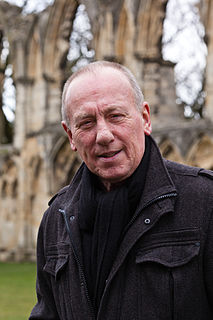A Quote by Rebecca Stead
I never had a favourite book! I liked all kinds of things - science fiction, so I read Heinlen and Ray Bradbury, and I also liked reading about kids like myself, so I read Judy Blume and Norma Klein and Paula Danzinger and a lot of other writers. I also read James Herriot!
Related Quotes
I read continually and don't understand writers who say they don't read while working on a book. For a start, a book takes me about two years to write, so there's no way I am depriving myself of reading during that time. Another thing is that reading other writers is continually inspiring - reading great writers reminds you how hard you have to work.
In a New York Post interview, Judy Blume, author of young-adult fiction, gave this advice on getting your kids to read: "Moms come up to me at book signings and describe how they're telling their daughters, 'These were my favorite books,'?" she says. "I say, 'Quit it! That's the biggest turnoff!'"You want to get them to read them, leave them around the house and every so often, say, 'You're not ready to read this yet.'
I’ve always liked to read about extremely wealthy people, especially when they are crazy (like Howard Hughes or Caligula.) While writing this book I did a lot of fun research on robber barons like Rockefeller and Morgan. But the most helpful stuff came from studying royal families and mad emperors. The best book I read was probably A King’s Own Story, which is the memoir of Edward VIII. Also, anything about Ivan the Terrible or Ted Turner.
I am a Christian resident of New York City. I simply read things the other Manhattanites read (NY Times, New Yorker magazine, Wall Street Journal, and many of the books they read) plus all my Christian reading. I don't do anything special to understand skeptics. I also talk to a lot of skeptics and read things they point to.
Sure, kids want to read whatever is the hot book, and of course they want to read fantasy and any kind of speculative fiction, but they also like to read stories with kids that look just like them, that have the same problems as them. And I've noticed that what they particularly want to see is to see those characters prevail. So they don't want sanitized situations. They want stories to be raw, they want them to be gritty, but they also do want to see the hope at the end of the story.
I guess...on one hand, I spent way too much time watching science fiction and reading science fiction when I was growing up. But a part of it is I also never felt much of a connection to the world in which I lived while I was growing up, and so, oddly enough, I think I felt a lot more connected to the worlds that I read about in science fiction.






































